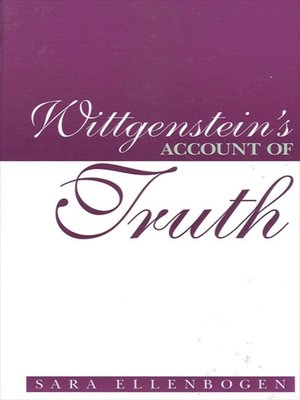
Sign up to save your library
With an OverDrive account, you can save your favorite libraries for at-a-glance information about availability. Find out more about OverDrive accounts.
Find this title in Libby, the library reading app by OverDrive.



Search for a digital library with this title
Title found at these libraries:
| Library Name | Distance |
|---|---|
| Loading... |
Explores the complex nature of truth in Wittgenstein's philosophy.
Wittgenstein's Account of Truth challenges the view that semantic antirealists attribute to Wittgenstein: that we cannot meaningfully call verification-transcendent statements "true." Ellenbogen argues that Wittgenstein would not have held that we should revise our practice of treating certain statements as true or false, but instead would have held that we should revise our view of what it means to call a statement true. According to the dictum "meaning is use," what makes it correct to call a statement "true" is not its correspondence with how things are, but our criterion for determining its truth. What it means for us to call a statement "true" is that we currently judge it true, knowing that we may some day revise the criteria whereby we do so.







